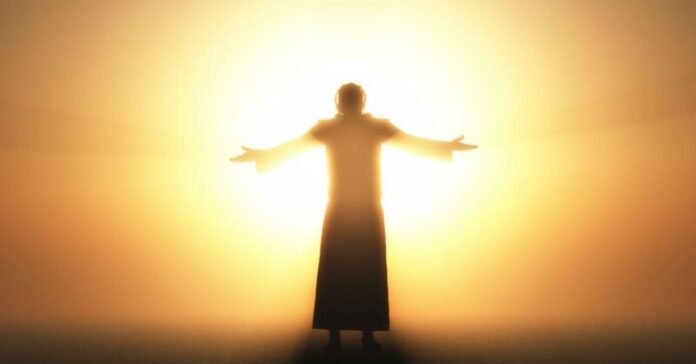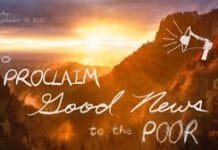ELEVENTH SUNDAY IN ORDINARY TIME
(Green) Cycle B/Year II (June 13, 2022)
Ez 17:22-24/2 Cor 5:6-10/Mk 4:26-34
THE KINGDOM OF GOD
Jesus Christ compares the kingdom of God into a seed that grows by its own self. The farmer simply plants the seed into the farm and waters it but he does not make it grow nor does he know how it grows. In the same way, the kingdom of God grows by its own self. Although we, Christians, as instruments of the kingdom of God do our best, but we are not the ones who make it grow. We do not even understand how it has grown from a simple group of followers of Christ in Israel to a full grown worldwide religion.
The parable tells us of the helplessness of man. The kingdom of God belongs to God who has the total control of it. Even though we may hinder the growth of it or may be instrumental to its growth, still God is the One who decides and makes it grow. We are simply instruments of God’s kingdom who must perform our obligation just like the farmer who has to perform his obligation of planting the seed and watering it.
The parable tells us of the nature of the growth of the kingdom of God. The growth of the kingdom of God is often imperceptible. Just like the growth of the seed that is almost impossible to observe, oftentimes we wonder how things of the past have changed in our present world and time. We can see the influence of the kingdom of God working in our society. Before, people were treated as slaves; but now we all fight for the human rights.
The growth of the kingdom of God is constant. The plant grows steadily even though the farmer is asleep at night. In the same way, the kingdom of God grows steadily even though we are not working 24 hours a day for its proclamation. God works not only through us but also without us. The growth of the kingdom of God is also inevitable. Because it grows steadily, it grows inevitably. The plant grows even though there are some hindrances like rocks or asphalt path or even concrete pavement. It can make its own way to grow amidst these hindrances. In the same way, the kingdom of God grows inevitably even though there are people or organizations that hinder its growth. Pagan countries are converted into Christian countries through the martyrdom of the missionaries.
The parable also tells us of the consummation. The day of harvest will come and the good fruits will be gathered in while the weeds and the tares will be destroyed. In the same way, there will be the judgment day in the kingdom of God. God will gather in the good ones who have observed the will of God. On the other hand, He will condemn to eternal damnation those who have not been faithful to fulfilling the will of God.
The judgment day invites us to be patient since we cannot acquire what we want here in this world. While we have a limited time, God has all the eternity to work for us and the kingdom of God. It also invites us to hope. True and perfect peace and justice can be met only in the kingdom of God. We should not despair about this world; we should rather hope for the better things and life that will come to us in the kingdom of God. Finally, it invites us to preparedness. If there is judgment day, then we have to prepare ourselves to meet God. We do not know the day of judgment and so we have to be always prepared. Only those who are prepared by faithfully fulfilling the will of God can enjoy the eternal bliss prepared by God from eternity.
(FOOD FOR THE SOUL/WEEKLY COLUMN OF REV. FR. ORLANDO MENDOZA, JR@BICOLPERYOCIKO)






















